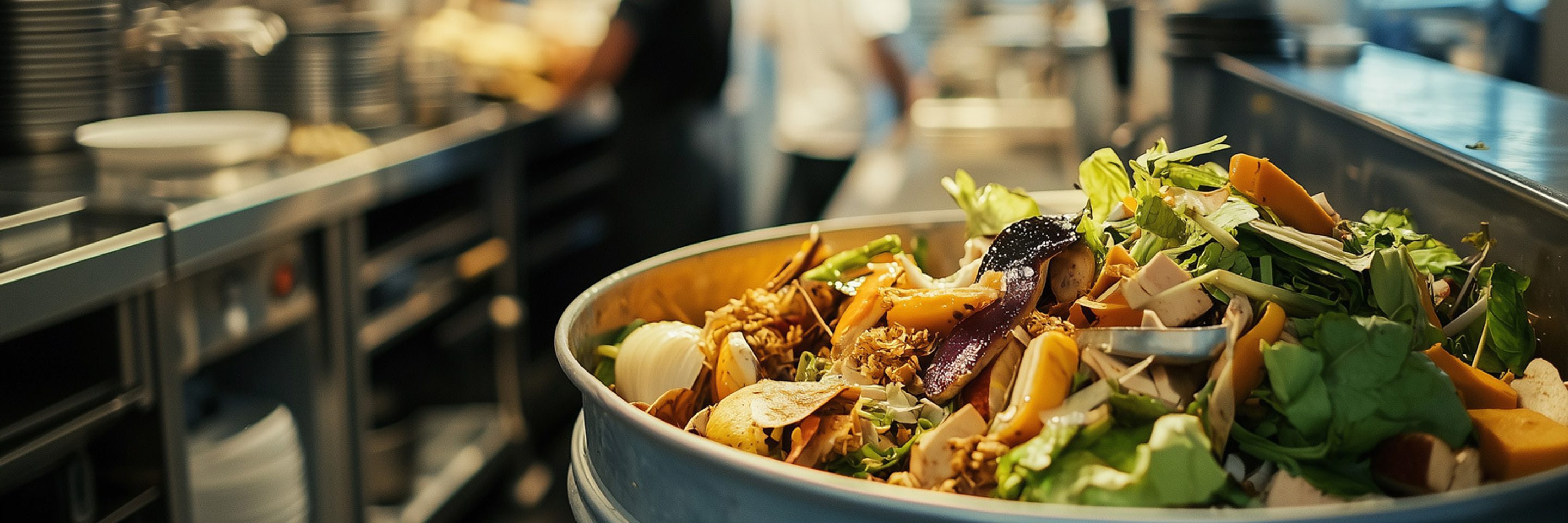
Law 1/2025 on the Prevention of Food Loss and Waste: Key Points and Business Obligations
Food waste is a global problem with serious economic, social, and environmental consequences. In Spain, 1.3 billion kilograms of food are thrown away every year, making it the seventh country in the European Union with the highest level of food waste.
To combat this issue, the Government has enacted Law 1/2025 of 1 April, on the Prevention of Food Loss and Waste, a pioneering regulation that establishes clear obligations for all actors in the food chain.
This law not only seeks to reduce environmental impact but also to promote a circular economy, improve business efficiency, and ensure that food surpluses reach those who need them most.
Why Is This Law Necessary?
Food waste has a triple negative impact:
- Spain is the 7th largest food waster in the EU, with 1.3 billion kilograms of food discarded annually (according to the Ministry of Agriculture, Fisheries and Food – MAPA).
- It generates environmental, economic, and social damage (CO₂ emissions, misuse of resources, and food inequality).
- It aligns with UN Sustainable Development Goal (SDG) 12.3, which seeks to halve global food waste by 2030.
- Law 1/2025 follows the model of other European countries such as France and Italy, which already have similar legislation in place.
Who Does This Law Affect? Scope and Obliged Sectors
The regulation has a very broad scope, impacting all stages of the food supply chain:
Producers and Manufacturers
- Must optimize processes to minimize losses during harvesting, storage, and transport.
- When surpluses occur, they must prioritize redistribution over destruction.
Distributors and Supermarkets
- Obligation to sell products approaching their expiration date at discounted prices or donate them.
- Prohibition on discarding food fit for consumption.
- Must facilitate reusable containers to reduce waste in bulk purchases.
Restaurants, Bars, and Catering Services
- Must offer customers the option to take leftovers home at no additional cost, using sustainable packaging.
- Required to record food surpluses and establish agreements with social entities for donations.
Consumers
- The law promotes awareness of responsible purchasing and proper food storage.
- Public campaigns will be launched to reduce household waste.
Public Administrations
- Must promote best practices through financial aid and awareness campaigns.
- Some regional governments (Autonomous Communities) may introduce tax incentives for companies that donate food.
Main Obligations for Companies
1. Food Waste Prevention Plan (mandatory within six months)
All businesses in the food sector must carry out an internal assessment to identify critical points of loss, establish corrective measures, and record data on unsold food and its final destination.
2. Hierarchy of Priorities for Managing Surplus
The law defines a specific order of action:
- Donation to food banks and NGOs (with food safety guarantees).
- Transformation into other products (juices, jams, preserves, etc.).
- Use for animal feed or biomass.
- Composting or biogas production (only when unfit for consumption).
3. New Rules for Food Sales
- “Ugly” or irregular products must be sold at reduced prices rather than discarded.
- Mandatory discounts for products nearing their expiration date.
- Prohibition on destroying unsold food, except in cases of health risk.
4. Changes in the Hospitality and Catering Sector
- Obligation to provide recyclable containers for take-away leftovers and clearly inform customers (via posters or menus).
Exemptions for Small-Scale Establishments
The obligations related to the Food Waste Prevention Plan and the promotion of agreements or partnerships for donating food surpluses do not apply to transformation, retail, distribution, hospitality, or catering activities carried out in establishments:
- Equal to or smaller than 1,300 m² in the case of companies without direct public sales, or
- With a usable display and sales area of 1,300 m² or less in the case of retail establishments.
A Legal Requirement — and an Opportunity
Law 1/2025 is not just a regulatory obligation; it represents a strategic opportunity for companies to optimize resources, reduce costs, and enhance their social and environmental impact.
Businesses that adapt quickly will gain a competitive advantage in a market increasingly committed to sustainability and responsible consumption.











